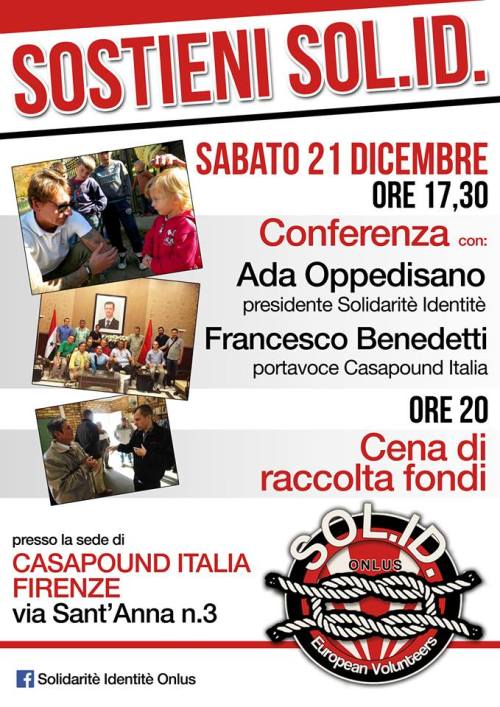Colin Wilson, the English author of well over a hundred books on subjects as diverse as philosophy, literary criticism, criminology, and the occult, as well as many novels, essays and short stories, passed away last Thursday (December 5, 2013) at 11:45 PM local time, in the presence of his wife, Joy, and his daughter, Sally. He was 82.
It was unfortunate that Colin’s death came within hours of Nelson Mandela’s, as it ended what little chance it had of being reported in the television news media, as would have been fitting for an author who I believe to have been among the most important authors of the latter half of the twentieth century. A number of obituaries have appeared in the British press this week, most of them full of mockery and some venturing shamelessly into insult. This was not unexpected, for reasons that I will discuss further on.
Colin’s name is probably not familiar to many younger readers in the United States, unless they have unusual reading tastes. Even in his native England, Colin isn’t very well-known among the younger generations, apart from his popular true crime and occult-themed books, which is a pity, since Colin’s work encompassed much more than that. Indeed, his first book, The Outsider [2], which has been variously classified as a work of existentialism, sociology and literary criticism, was published in 1956, when Colin was only 24 years old, and became an instant bestseller throughout the English-speaking world, and was, briefly, the talk of the literary world. Few would have imagined at that time, I suspect, that he would end up passing into obscurity. It is certainly unjust that his exit from this world should have been upstaged by Mandela’s, since Colin was undoubtedly the more important of the two men.
I am probably biased in making this judgment, since Colin was a personal acquaintance of mine. I remember first coming across his book, Beyond the Outsider [3] , on the remainder table outside of the downtown Ann Arbor Borders during a period when I had dropped out of my classes at the University of Michigan out of despair and frustration. Colin’s writing opened up a whole new intellectual vista for me. Unlike much of what went on in my university classes, Colin’s ideas really struck a chord with me. This was no dry intellectualism or critique of the guilt of the modern West, and still less a “deconstruction” – this was a philosophy of and call to unabashed and unapologetic heroism, based upon the best (and now discredited by the mainstream) aspects of the Western tradition. It was, in part, my enthusiasm for Colin’s work that led me to finally return to and finish school. I was also inspired to set up the first Website dedicated to Colin in 1996, which soon led to me getting in touch with the man himself. We corresponded for many years, and I was fortunate enough to meet him at a conference of the International Fortean Organization in November 2000, where he was a speaker. I can’t claim that Colin was a close friend of mine, but he was certainly an acquaintance, and served as a great inspiration to me during a crucial time of my life. Therefore, the news of Colin’s death came as a blow for me, although not an unexpected one, considering his age.
, on the remainder table outside of the downtown Ann Arbor Borders during a period when I had dropped out of my classes at the University of Michigan out of despair and frustration. Colin’s writing opened up a whole new intellectual vista for me. Unlike much of what went on in my university classes, Colin’s ideas really struck a chord with me. This was no dry intellectualism or critique of the guilt of the modern West, and still less a “deconstruction” – this was a philosophy of and call to unabashed and unapologetic heroism, based upon the best (and now discredited by the mainstream) aspects of the Western tradition. It was, in part, my enthusiasm for Colin’s work that led me to finally return to and finish school. I was also inspired to set up the first Website dedicated to Colin in 1996, which soon led to me getting in touch with the man himself. We corresponded for many years, and I was fortunate enough to meet him at a conference of the International Fortean Organization in November 2000, where he was a speaker. I can’t claim that Colin was a close friend of mine, but he was certainly an acquaintance, and served as a great inspiration to me during a crucial time of my life. Therefore, the news of Colin’s death came as a blow for me, although not an unexpected one, considering his age.
Life
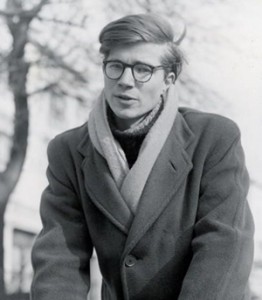 Colin wrote two autobiographies: the first, Voyage to a Beginning [4]
Colin wrote two autobiographies: the first, Voyage to a Beginning [4] , was published in 1969; and Dreaming to Some Purpose [5]
, was published in 1969; and Dreaming to Some Purpose [5] , in 2004. These are the best sources for learning about Colin’s life, but I will offer a few essentials.
, in 2004. These are the best sources for learning about Colin’s life, but I will offer a few essentials.
Colin was born on June 26, 1931 in Leicester, England to a working-class family. He developed an early passion for reading and ideas, although his first love was science. He left school, as was normal for teenagers who were expected to go to work, at age 16, and got a job as an assistant in a chemistry lab. He has described how his early enthusiasm for science quickly waned, as he discovered that it alone failed to answer many of the essential questions, such as the meaning of life and his place in it. Gradually sinking into despair, he describes how he went to work one day with the intention of killing himself. Upon arriving, he took down a bottle of hydrochloric acid that he knew would kill him immediately. But once he opened it and was about to drink, he suddenly saw himself as two people. One was a depressed and confused teenager; the other was the person he realized he could become. He realized that it didn’t matter at all if the first killed himself, he said; but if the first Colin Wilson died, he would be taking the other one with him, and that would be a tragedy. So he put the bottle back and went about his work.
Colin discovered his new passion in literature, philosophy and writing, which he threw himself into with feverish enthusiasm. Supporting himself through a series of low-paying jobs for the next several years, he began gestating the ideas that would eventually become his first book, The Outsider [2] .
.
It should be of interest to Counter-Currents readers that, at this time, Wilson befriended Sir Oswald Mosley, whom he met at a café. (Wilson later claimed that he knew nothing of Mosley’s political activities at the time.) Wilson and Mosley shared an interest in many of the same writers and philosophers, and apparently their friendship continued until Mosley’s death, over 20 years later. Mosley even penned a very laudatory review of The Outsider [2] under a pseudonym in his journal, The European, shortly after the former’s publication. Wilson, for his part, never disavowed his friendship with Mosley, although he did disavow fascism and wrote, in a review of two books about Mosley that he published in 1961, that he considered Mosley to be a great man in spite of his error, in Wilson’s view, of embracing fascism. Nonetheless, this relationship was one that was to dog Wilson for the remainder of his career, and more than one journalist attempted to brand him with the “fascist” label.
under a pseudonym in his journal, The European, shortly after the former’s publication. Wilson, for his part, never disavowed his friendship with Mosley, although he did disavow fascism and wrote, in a review of two books about Mosley that he published in 1961, that he considered Mosley to be a great man in spite of his error, in Wilson’s view, of embracing fascism. Nonetheless, this relationship was one that was to dog Wilson for the remainder of his career, and more than one journalist attempted to brand him with the “fascist” label.
It was in 1955 that Colin, frustrated at the amount of time and energy that he was spending just to make ends meet instead of reading and writing, gave up his flat and took up residence in a sleeping bag on Hampstead Heath, a park in London. He would spend his days in the Reading Room at the British Museum, studying and working on The Outsider [2] . (He later confessed that, when it was particularly cold, he would spend the night at his then-girlfriend Joy’s place.) It just so happened that the supervisor of the Reading Room at that time was the novelist Angus Wilson, and he and Colin struck up a friendship. When Angus learned that Colin was working on a book, Angus asked to see it, and was so impressed by it that he decided to show it to his publisher, Gollancz, which soon agreed to publish it. And when the book was published in both the United Kingdom and the United States in 1956, it became an instant bestseller, earning widespread praise even from established literary figures like Cyril Connolly, Philip Toynbee and Edith Sitwell, all of whom assured their readers that Colin’s career was greatness in the making. For a 24-year-old author publishing his first book, it was unheard-of. It was every young writer’s fantasy brought to life, and might seem to have been almost too good to be true.
. (He later confessed that, when it was particularly cold, he would spend the night at his then-girlfriend Joy’s place.) It just so happened that the supervisor of the Reading Room at that time was the novelist Angus Wilson, and he and Colin struck up a friendship. When Angus learned that Colin was working on a book, Angus asked to see it, and was so impressed by it that he decided to show it to his publisher, Gollancz, which soon agreed to publish it. And when the book was published in both the United Kingdom and the United States in 1956, it became an instant bestseller, earning widespread praise even from established literary figures like Cyril Connolly, Philip Toynbee and Edith Sitwell, all of whom assured their readers that Colin’s career was greatness in the making. For a 24-year-old author publishing his first book, it was unheard-of. It was every young writer’s fantasy brought to life, and might seem to have been almost too good to be true.
And it was.
Upon the publication of the second book in what came to be called Colin’s “Outsider cycle,” Religion and the Rebel [6] , in 1957, the critics who had previously been so full of praise had now turned vicious. It was obvious, many of them claimed, that they had been fooled – Wilson was nothing but a pretentious, egotistical hack who was attempting to grapple with issues that were beyond his knowledge and maturity. This established a pattern in the British press that has continued up to the obituaries being published about him at present. Either Colin Wilson was to be ridiculed, or else ignored altogether.
, in 1957, the critics who had previously been so full of praise had now turned vicious. It was obvious, many of them claimed, that they had been fooled – Wilson was nothing but a pretentious, egotistical hack who was attempting to grapple with issues that were beyond his knowledge and maturity. This established a pattern in the British press that has continued up to the obituaries being published about him at present. Either Colin Wilson was to be ridiculed, or else ignored altogether.
There are many reasons for this. Jealousy was no doubt a factor. Another was that the press made Colin into a celebrity, and he, at age 24, was too naive to realize how he was being used by them, as he himself later conceded. People became sick of seeing Wilson’s name and picture in the newspapers and magazines (he even made the cover of Life magazine). Another factor was an incident in early 1957 in which Joy’s father came across some notes that Colin had been making for a novel he was working on (which later became Ritual in the Dark [7] ), in which a character is a sexual deviant. Thinking that these notes were Colin’s own beliefs, Joy’s father immediately went over to his apartment, bursting in on them while they were having dinner and famously crying, “The game is up, Wilson!” As he refused to listen to Colin’s explanations, the police were called, and although the incident quickly came to an end, the reporters were already on their way, and soon the story about the young literary celebrity getting his comeuppance was in every newspaper in Britain. The fate of Colin’s reputation was sealed.
), in which a character is a sexual deviant. Thinking that these notes were Colin’s own beliefs, Joy’s father immediately went over to his apartment, bursting in on them while they were having dinner and famously crying, “The game is up, Wilson!” As he refused to listen to Colin’s explanations, the police were called, and although the incident quickly came to an end, the reporters were already on their way, and soon the story about the young literary celebrity getting his comeuppance was in every newspaper in Britain. The fate of Colin’s reputation was sealed.
It just so happened that the publication of The Outsider [2] coincided with the premiere of 26-year-old John Osborne’s play Look Back in Anger [8]
coincided with the premiere of 26-year-old John Osborne’s play Look Back in Anger [8] , which, although it failed to garner the critical acclaim of Colin’s book, became very popular with audiences, and was seen as a sign of the British Zeitgeist. As a result, the press decided to lump Wilson and Osborne together with several other writers, including Kingsley Amis, Alan Sillitoe, Harold Pinter and others, and dubbed them the “angry young men.” Although their specific styles and ideas had little in common, these writers were young and discontented with British society of the 1950s, and came from lower-class backgrounds. So, Colin was now part of a literary movement. Another of the angry young men was Bill Hopkins, a lifelong friend of Colin’s, who in later years befriended Jonathan Bowden. Although Hopkins was soon to abandon his writing career in favor of becoming an art dealer, he did publish a single novel, The Divine and the Decay (later republished as The Leap!), which explores fascistic ideas. (See Jonathan Bowden’s excellent lecture [9] on Hopkins.)
, which, although it failed to garner the critical acclaim of Colin’s book, became very popular with audiences, and was seen as a sign of the British Zeitgeist. As a result, the press decided to lump Wilson and Osborne together with several other writers, including Kingsley Amis, Alan Sillitoe, Harold Pinter and others, and dubbed them the “angry young men.” Although their specific styles and ideas had little in common, these writers were young and discontented with British society of the 1950s, and came from lower-class backgrounds. So, Colin was now part of a literary movement. Another of the angry young men was Bill Hopkins, a lifelong friend of Colin’s, who in later years befriended Jonathan Bowden. Although Hopkins was soon to abandon his writing career in favor of becoming an art dealer, he did publish a single novel, The Divine and the Decay (later republished as The Leap!), which explores fascistic ideas. (See Jonathan Bowden’s excellent lecture [9] on Hopkins.)
The Outsider
So what is The Outsider? The book is still in print – and, as far as I know, has been continuously since 1956 – so readers still have ample opportunity to find out for themselves. But I will provide a brief overview. It is a survey of writers, artists, and mystics who Colin believed defined the outsider identity. This included H. G. Wells, George Bernard Shaw, Hermann Hesse, Albert Camus, Jean-Paul Sartre, T. S. Eliot, Ernest Hemingway, T. E. Lawrence, Vincent van Gogh, Nijinsky, Friedrich Nietzsche, Fyodor Dostoevsky, William Blake, Ramakrishna, and G. I. Gurdjieff, among others.
Colin defined “outsiders” as those individuals who feel alienated from the society they live in, and who feel compelled to defy the conventions of their time and attempt to forge something new that transcends it, either in their work or in their own lives (sometimes both). He once said that outsiders are the warts that appear on the face of a civilization that has lost its health and sense of meaning. Colin believed that the existentialists, who were at the peak of their popularity in Continental Europe at the time he was writing, held the key to understanding this predicament. The existentialists recognized that life has no meaning apart from what we ourselves give it, which Colin agreed with. But he took the French existentialists to task for coming to what he saw as negative conclusions. Sartre and Camus, he held, saw it as a tragedy that man has no essential meaning and that he was “condemned” to be free. Such a view led Sartre to come to the rather ridiculous conclusion that, all meanings being equal, he should embrace Communism. For Colin, existentialism should not be about making false commitments, but rather of affirming the boundless potential freedom of the individual to realize himself.
The mystical experience was a vital proof of this. (“Any system of values must ultimately be mystical,” he wrote.) Rather than interpreting mysticism in a religious way (Colin was always uninterested in any form of institutionalized religion), he saw such experiences as a crucial factor in human evolution. An analogy he frequently used was the “Christmas morning” experience that a child has, when everything seems alive, fresh and infinitely complex, or the “absurd good news” referenced by G. K. Chesterton. In Colin’s view, psychologically healthy people have such experiences all the time. He believed that those who were among the elite of human society (which he estimated as being 5% of the whole) would actively seek such states through various means such as adventure, danger, sex, drugs, battle, art, and/or asceticism. For Colin, this was more than just a psychological phenomenon – it was a presaging of an entirely new form of consciousness that humans are only just beginning to explore, but which will eventually bring about an entirely new phase in our development. “The outsider stands for truth,” he wrote.
Career and Ideas
In spite of the savagery his second book sustained at the hands of the critics, the success of The Outsider had at least provided Colin with enough money to purchase a home in Cornwall, where he and Joy were to remain permanently, and they began raising a family – Colin eventually had three sons and one daughter. He also now had a reputation as a writer, and this enabled him to begin supporting himself entirely from his writing, although this proved to be a challenging task for a man with a family, and no doubt explains his prodigious output. His intensive need to make his living by his pen even led to a nervous breakdown in 1973, from the strain of overwork.
In typical Wilsonian fashion, Colin was inspired to take one of his ideas from the experience, which he termed “the ladder of selves,” by which he meant the various levels of consciousness that one can attain. Most, he felt, never venture beyond the lower rungs, which are accessible by anyone with merely biological impulses. But those with a drive to realize their will, he believed, could access the higher rungs, and discover previously unknown layers of their own personalities. Colin believed that multiple personality disorder was a corruption of this facet of human nature.
Nevertheless, Colin persevered, and always earned his living as a writer (with occasional teaching gigs, lecturing, and television appearances to go along with it). Wilson also had a reputation for being a voracious book and record (LPs, for the young) collector. He is reputed to have acquired many tens of thousands of volumes over the course of his life, and eventually had to construct a series of sheds on his property in Cornwall in order to house them.
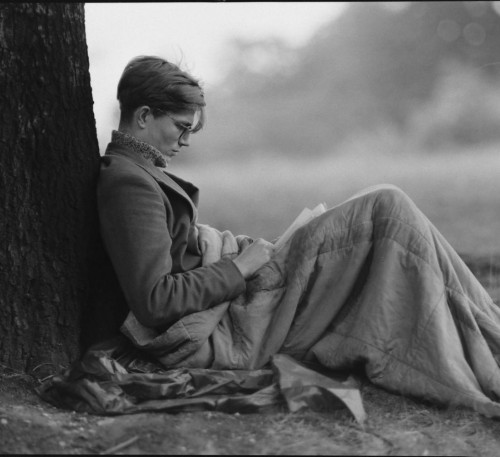
Colin’s writing career had two distinct phases to it. The phase that commenced with The Outsider, and which comprises his work of the 1950s and ’60s, I would term his “New Existentialism” phase, and is undoubtedly the era of his most important books. This is when Colin laid down the premises for his work, primarily through philosophy and literature, although he also began to engage with psychology. He befriended Dr. Abraham Maslow, and adopted from him the term “peak experience” to describe the mystical states of intensity which outsiders experience. Maslow believed that peak experiences come and go, but that one couldn’t control them. Colin contested this idea, believing that they could be induced at will, and he actually worked at developing techniques by which they could be attained.
At the same time, he was also laying the foundations for a new school of existentialism that was free of the pessimism that defined the French incarnation of it. Colin was very adamant that pessimism was detrimental to human development, and believed that pessimism could even affect perception and thus alter one’s ability to accurately perceive and know the world. This was an overriding concern of his throughout his career. An illustration he frequently used to make this point was the existence in the course of Van Gogh’s lifetime both of the painting, “Starry Night,” and Van Gogh’s suicide note. When one looks at the painting, one is awestruck by the wonderment of the scene. It gives the impression of an overflowing of the senses, of gifted perception made permanent. And yet the man who was capable of seeing the world in this way was also capable of despising life to the extent that he could destroy himself, leaving a note that said, “Misery will never end.” “‘Starry Night’ was true, the suicide note was false,” Colin was fond of saying. I still believe that the basis for a new existentialism upon the premises that he outlined remains an as yet unexplored potential worthy of further consideration, and may even offer a worthy alternative to postmodernism.
In 1971, this interest in the mystical led to one of Colin’s most important works, The Occult [10] . This was the book that launched what came to define the second part of his career: the mystical and the supernatural, which Colin believed provided further evidence for the coming change in human consciousness. Colin’s interest in such matters wasn’t motivated by any interest in demonic powers or such things, but rather his view that such phenomena are manifestations of unsuspected powers of the human mind, which he thought we would eventually learn to control and exploit. The Occult became the first of many books that Colin would write on the subject. Beginning in the 1990s, he also wrote a series of books which I personally found fascinating on the evidence for an advanced, worldwide civilization on the Earth in prehistoric times (along the lines of Graham Hancock’s Fingerprints of the Gods [11]
. This was the book that launched what came to define the second part of his career: the mystical and the supernatural, which Colin believed provided further evidence for the coming change in human consciousness. Colin’s interest in such matters wasn’t motivated by any interest in demonic powers or such things, but rather his view that such phenomena are manifestations of unsuspected powers of the human mind, which he thought we would eventually learn to control and exploit. The Occult became the first of many books that Colin would write on the subject. Beginning in the 1990s, he also wrote a series of books which I personally found fascinating on the evidence for an advanced, worldwide civilization on the Earth in prehistoric times (along the lines of Graham Hancock’s Fingerprints of the Gods [11] ). Even these books tie into his interest in consciousness, since he believed, along with Julian Jaynes, that the ancients possessed a different form of it than we have today.
). Even these books tie into his interest in consciousness, since he believed, along with Julian Jaynes, that the ancients possessed a different form of it than we have today.
The other genre that defines the second part of Colin’s career is true crime, which actually began in 1961 when he co-wrote Encyclopedia of Murder [12] , although he began writing much more on the subject beginning in the 1970s. Murder is also something that occurs frequently in Colin’s novels. Colin was always fascinated by it, and by serial killers in particular. He viewed serial killers as a sort of flawed type of outsider – he believed they were artists whose creative powers had become misdirected into violence, and that the thrill they got from transgressing the moral order (which he thought induced a type of peak experience in the killers) became addictive. Colin thought that some criminals could be successfully rehabilitated by offering them an artistic outlet while they were in prison, and he helped to design experimental programs that were used in prisons in the United States.
, although he began writing much more on the subject beginning in the 1970s. Murder is also something that occurs frequently in Colin’s novels. Colin was always fascinated by it, and by serial killers in particular. He viewed serial killers as a sort of flawed type of outsider – he believed they were artists whose creative powers had become misdirected into violence, and that the thrill they got from transgressing the moral order (which he thought induced a type of peak experience in the killers) became addictive. Colin thought that some criminals could be successfully rehabilitated by offering them an artistic outlet while they were in prison, and he helped to design experimental programs that were used in prisons in the United States.
Some people who had been admirers of his early books were disappointed by the turn that Colin’s work took from the 1970s onward. Apart from occasional essays, Colin largely abandoned philosophy and literary criticism – he wrote no major works on those subjects after the early 1970s. Part of this was no doubt because he discovered that it was easier to sell occult and true crime books than books on philosophy. However, I do believe that he said everything that he wanted to say about philosophy in those early books, and his later books – the best of them, at any rate – can be seen as a continuation of his earlier concerns in other mediums. Colin’s perpetual subject was always consciousness and its possibilities, and while some may disagree with the direction he took, there is no doubt in my mind that he genuinely believed that the study of the occult and of the criminal mentality could offer vital clues as to how consciousness is evolving, and thus help to resolve the “search for meaning” of the existential outsider.
There are also some books of his that defy easy categorization. There is A Book of Booze [13] , his book on one of his greatest loves: wine (and I can report that we polished off several bottles at his insistence on the evening that I was fortunate enough to join him for dinner). There is Brandy of the Damned [14]
, his book on one of his greatest loves: wine (and I can report that we polished off several bottles at his insistence on the evening that I was fortunate enough to join him for dinner). There is Brandy of the Damned [14] , his survey of one of his other greatest loves: classical music. There is L’Amour: The Ways of Love [15]
, his survey of one of his other greatest loves: classical music. There is L’Amour: The Ways of Love [15] , a book he wrote on sex to accompany a series of erotic photographs. And there are also his many novels, including several written in the world of the Cthulhu Mythos of Lovecraft; but trying to do a survey of them goes beyond the scope of this essay.
, a book he wrote on sex to accompany a series of erotic photographs. And there are also his many novels, including several written in the world of the Cthulhu Mythos of Lovecraft; but trying to do a survey of them goes beyond the scope of this essay.
Politics
As this is appearing at Counter-Currents, I feel I should also write something about Colin’s relationship to politics. Colin himself always eschewed politics, and rarely mentioned it in his work; he said at times that he didn’t think writers should engage with contemporary politics, and suggested on more than one occasion that writers who did so were wasting their time. He also claimed that he really didn’t understand politics himself. Nevertheless, there are a few interesting things to be said. I have already discussed Colin’s relationship with both Sir Oswald Mosley and Bill Hopkins. In his autobiography, he says that he considered himself to be an anarchist in his youth; in the 1950s and ’60s, he expressed sympathy for socialism in some of his public statements. In the 1970s, he aroused some controversy for writing a review of Richard Verrall’s Did Six Million Really Die?, a work of Holocaust revisionism. The controversy arose not because Colin defended Verrall’s thesis, since he remained noncommittal about it, but simply because he said that the evidence presented was compelling and was worthy of being taken seriously. Given the problems he had encountered earlier because of his connection to Mosley, this has also been presented by some as proof of his fascist sympathies.
I also recall reading an uncollected essay by Colin that was published in the 1970s on the subject of Hitler. The essay as a whole was rather unremarkable, but something Colin wrote at the end of it struck me and stuck in my memory. I don’t have a copy at hand, but I remember he pointed out that Hitler’s power derived from his ability to create a myth that inspired and motivated the German people to incredible feats. At the end, he wrote something to the effect of, “If the civilization which defeated Hitler is actually to demonstrate that it is better than his was, then it needs to create heroic myths of its own, rather than embrace nihilism.” I think this aptly sums up the primary difference between the traditional worldview and that of liberalism.
By the 1980s, Colin had taken a more decisive turn toward Toryism. This was underscored by what I believe to be his sole venture into the world of contemporary politics: a volume he co-edited in 1987 entitled Marx Refuted: The Verdict of History [16] . It is an anthology of essays opposing Marxism which includes one by no less a person than Margaret Thatcher, as well as contributions from Arthur Koestler, Alexander Solzhenitsyn, A. L. Rowse, and Milton Friedman, as well as from Colin himself. How this book came about or why Colin chose to do it, I don’t know, but it is an interesting footnote to his otherwise total disinterest in politics.
. It is an anthology of essays opposing Marxism which includes one by no less a person than Margaret Thatcher, as well as contributions from Arthur Koestler, Alexander Solzhenitsyn, A. L. Rowse, and Milton Friedman, as well as from Colin himself. How this book came about or why Colin chose to do it, I don’t know, but it is an interesting footnote to his otherwise total disinterest in politics.
Something that is not very well-known about Colin, however, is that his books are extremely popular in the Middle East, and many of them have been translated into Arabic and Farsi (although he once mentioned to me that he profited little from this popularity, as most of the books were pirated editions). In 1973, he was invited to Beirut, where he was met at the airport by the mayor of the city on a red carpet. On the same trip he was invited by some Palestinian guerrillas to visit one of their camps. The experience made him very sympathetic to the Palestinian cause, and he wrote an essay in favor of them at the time. He also related to me that on this same trip, he went to Damascus, where he was met by the then War Minister, General Tlas, who regaled him with a story from when he and his comrades had been imprisoned by the previous regime. They had read Colin’s novel Ritual in the Dark by tearing the pages out of a copy and passing them from one to the other as they read. As a token of thanks, he presented Colin and Joy with Arab robes and a bronze plaque. Colin was also invited to Iran at the behest of the government in the 1970s, but he said the plan fell through after the Shah was overthrown.
The most interesting connection, however, is between Colin and Colonel Gaddafi. Gaddafi made frequent complimentary references both to Colin and to The Outsider throughout his reign. (I remember seeing a transcript of a speech he had given in the 1990s in which he chided the Clinton White House for inviting Salman Rushdie there, but not Colin Wilson.) Colin told me that he had been asked by the Libyan embassy to make a visit to the country at the government’s behest, but that he had declined out of fear that such a visit would have made it seem as though he were endorsing Gaddafi’s politics.
I would not call Colin a Rightist or a traditionalist. To do such a thing would be to read something into his work that simply isn’t there. At the same time, however, Colin always remained an unabashed elitist, from start to finish. He often reiterated his view that it is only 5% of humanity that comprise a potential elite, and that the majority of men, as he once put it, ought not to have bothered to be born at all. As such, his work is entirely consistent with a hierarchical view of life and civilization.
Reflections
I no longer view Colin Wilson as the demigod that I saw him as when I was in my mid-’20s, when I took his word as gospel and believed that he had the answer to life, the universe, and everything. (Julius Evola and René Guénon, whom I discovered shortly thereafter, soon knocked him off of that pedestal.) His critics are at least partially correct when they say that Colin sometimes overstretched himself, and was perhaps guilty of too much generalization and unfounded speculation on occasion. And I certainly would not suggest to anyone that they attempt to read through his entire corpus – anyone who has read many of Colin’s books will attest that only a third of them, perhaps, are truly great. The rest of them contain a lot of repetition, and some of them were obviously only written for money (such as many of his occult and true crime books, entertaining as they can be). But that third is genuine gold, and I believe is worthy of being read by anyone who is looking for worthy alternatives to the prevailing way of thinking about the nature and destiny of humanity in modern times.
Colin Wilson occupies a unique place in late twentieth-century thought. In an era of extreme specialization, he dared to range across the entire gamut of human endeavor in pursuit of understanding humanity’s untapped potential. In an era when the culture and figures of the West are frequently derided, Colin based his work unapologetically on the best minds of our civilization, and never worried about political correctness. In an era when equality, conformity and consumerism is valued over genuine achievement and self-development, Colin offered a vision of heroism, which affirmed that not only can an individual rise above the monotonous, bourgeois reality of our times, but that, for the outsider, it is an absolute must.
His vision will remain a compelling one long after his death.
His Chief Works
For those interested in delving into Colin’s work, I can offer a few suggestions. Many of Colin’s older works are long out-of-print, but it’s usually not difficult to find used copies.
His most important works, few would argue, are those in his “Outsider cycle.” The sequence is comprised of The Outsider, Religion and the Rebel [6] , The Age of Defeat [17]
, The Age of Defeat [17] (an abridged edition was published in the United States as The Stature of Man), The Strength to Dream [18]
(an abridged edition was published in the United States as The Stature of Man), The Strength to Dream [18]
 , Origins of the Sexual Impulse [19]
, Origins of the Sexual Impulse [19] , and Beyond the Outsider [20]
, and Beyond the Outsider [20] . A seventh volume, variously published as The New Existentialism [21]
. A seventh volume, variously published as The New Existentialism [21] and An Introduction to the New Existentialism [22]
and An Introduction to the New Existentialism [22] , presents the ideas from these books in brief, and can serve as a good summary for those uninterested in reading the entire series.
, presents the ideas from these books in brief, and can serve as a good summary for those uninterested in reading the entire series.
The Craft of the Novel [23] is probably Colin’s most important work of literary criticism. In it he discusses his conception of “Existential Criticism,” in which he held that a work of literature should be evaluated first and foremost on the basis of the ideas and worldview it presents.
is probably Colin’s most important work of literary criticism. In it he discusses his conception of “Existential Criticism,” in which he held that a work of literature should be evaluated first and foremost on the basis of the ideas and worldview it presents.
In terms of his occult work, The Occult [10] and Mysteries [24]
and Mysteries [24] are his two primary works, of many he wrote on the subject. Beyond the Occult [25]
are his two primary works, of many he wrote on the subject. Beyond the Occult [25] seems to have been an attempt by Colin to reconcile his later interest in the occult with his earlier, existential ideas.
seems to have been an attempt by Colin to reconcile his later interest in the occult with his earlier, existential ideas.
A Criminal History of Mankind [26] is undoubtedly Colin’s most important work in the area of criminology. New Pathways in Psychology: Maslow and the Post-Freudian Revolution [27]
is undoubtedly Colin’s most important work in the area of criminology. New Pathways in Psychology: Maslow and the Post-Freudian Revolution [27] was the product of his interaction with Maslow, and it examines the idea of the “peak experience” at length.
was the product of his interaction with Maslow, and it examines the idea of the “peak experience” at length.
And lastly, there are his novels. He wrote many, including “novels of ideas,” mysteries, and science fiction. My personal favorites would include Ritual in the Dark [7] , which is about a struggling young writer named Gerard Sorme who is obsessed with the meaninglessness of life, until he begins to worry that a friend of his could be a serial killer who is on the loose in London. Another I enjoyed was The World of Violence [28]
, which is about a struggling young writer named Gerard Sorme who is obsessed with the meaninglessness of life, until he begins to worry that a friend of his could be a serial killer who is on the loose in London. Another I enjoyed was The World of Violence [28] , which is about a young mathematical prodigy, Hugh Greene, who becomes dissatisfied with the intellectual world and becomes attracted to violence, becoming embroiled in a criminal gang, guns and the hunt for a serial killer. And then there is The Philosopher’s Stone [29]
, which is about a young mathematical prodigy, Hugh Greene, who becomes dissatisfied with the intellectual world and becomes attracted to violence, becoming embroiled in a criminal gang, guns and the hunt for a serial killer. And then there is The Philosopher’s Stone [29] , which is set in the world of the Cthulhu Mythos. Colin was enticed into the Lovecraftian world by August Derleth, who had challenged Colin to write the earlier novel The Mind Parasites [30]
, which is set in the world of the Cthulhu Mythos. Colin was enticed into the Lovecraftian world by August Derleth, who had challenged Colin to write the earlier novel The Mind Parasites [30] , also a Cthluhu Mythos story. Derleth praised Colin for his efforts. The Philosopher’s Stone [29]
, also a Cthluhu Mythos story. Derleth praised Colin for his efforts. The Philosopher’s Stone [29] is about a scientist, Howard Lester, who is conducting experiments in an effort to extend the human lifespan, but accidentally discovers an operation on the brain which results in greatly enhanced mental powers. As he begins to explore the new powers of his mind, Lester comes to realize that there are ancient and powerful hidden forces which are seeking to prevent humanity from evolving beyond its current state. Bits of Colin’s philosophy always find their way into his novels.
is about a scientist, Howard Lester, who is conducting experiments in an effort to extend the human lifespan, but accidentally discovers an operation on the brain which results in greatly enhanced mental powers. As he begins to explore the new powers of his mind, Lester comes to realize that there are ancient and powerful hidden forces which are seeking to prevent humanity from evolving beyond its current state. Bits of Colin’s philosophy always find their way into his novels.
There is also a good anthology of selections from several of Colin’s works intended to introduce his chief ideas entitled The Essential Colin Wilson [31] . Colin also regarded a survey of his work written by Howard F. Dossor, Colin Wilson: The Man and His Mind [32]
. Colin also regarded a survey of his work written by Howard F. Dossor, Colin Wilson: The Man and His Mind [32] to have been the best and most comprehensive to date.
to have been the best and most comprehensive to date.



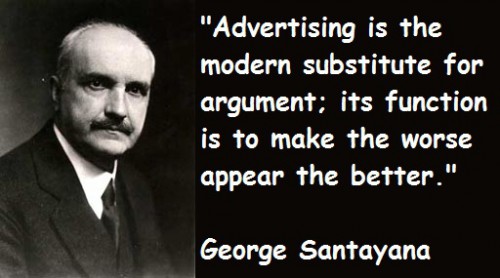
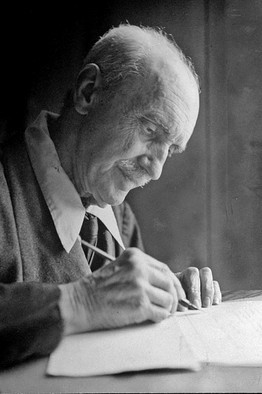 Er war z. B. Materialist und Atheist (Naturalist), schätzte aber die religiösen Traditionen des Katholizismus. Santayana kam während seines Studiums in Berlin in Berührung mit dem Werk Schopenhauers, über den er auch seine Dissertation schreiben wollte. Dies wurde ihm jedoch von seinem Doktorvater in den USA verwehrt. Die starken ästhetischen Interessen Santayanas wurden aber durch die Lektüre Schopenhauers gefördert – sein frühestes Werk, das sich auch gegen Kant richtete, unternahm bereits eine Verteidigung des Sinns für Schönheit (The Sense of Beauty, 1896).
Er war z. B. Materialist und Atheist (Naturalist), schätzte aber die religiösen Traditionen des Katholizismus. Santayana kam während seines Studiums in Berlin in Berührung mit dem Werk Schopenhauers, über den er auch seine Dissertation schreiben wollte. Dies wurde ihm jedoch von seinem Doktorvater in den USA verwehrt. Die starken ästhetischen Interessen Santayanas wurden aber durch die Lektüre Schopenhauers gefördert – sein frühestes Werk, das sich auch gegen Kant richtete, unternahm bereits eine Verteidigung des Sinns für Schönheit (The Sense of Beauty, 1896).
 del.icio.us
del.icio.us
 Digg
Digg

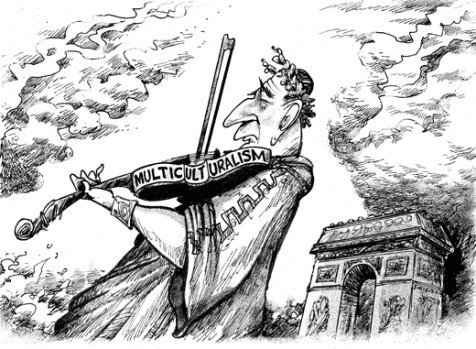
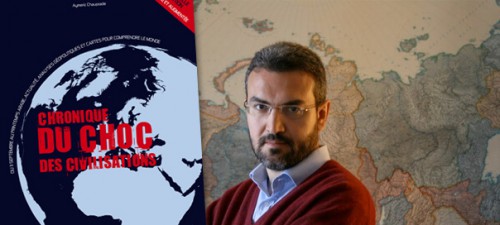
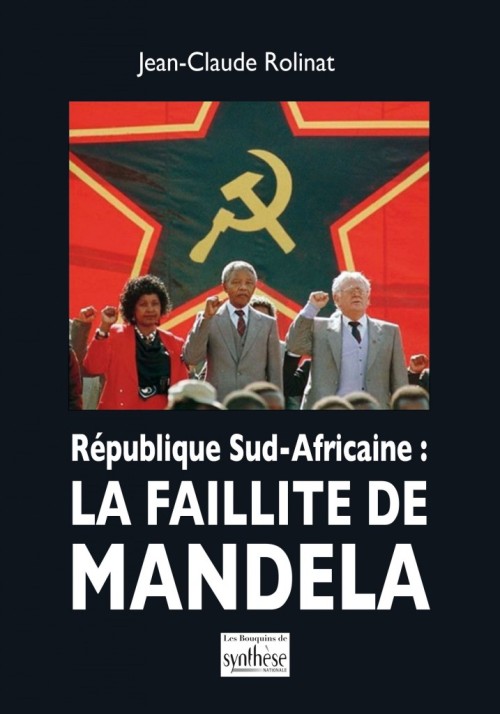

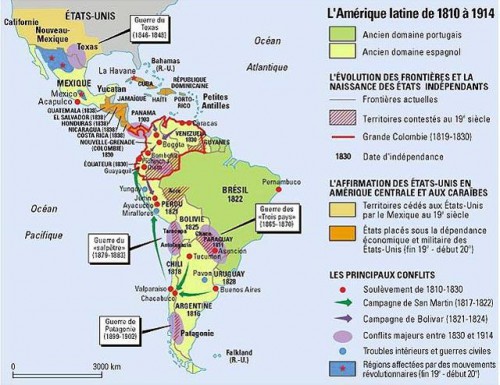

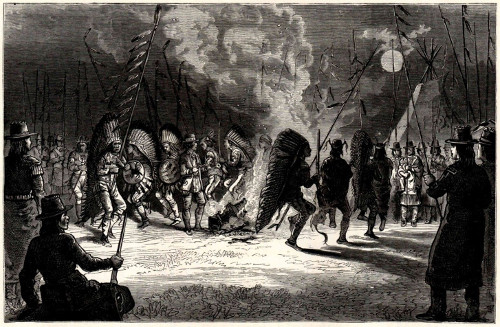








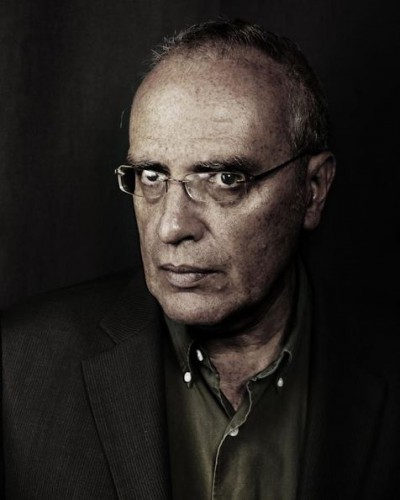



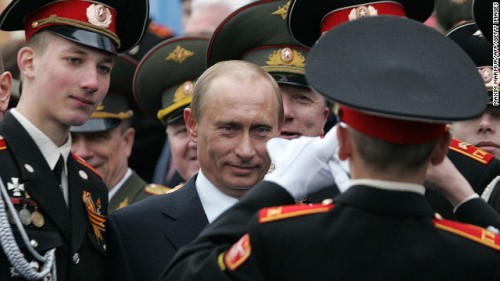
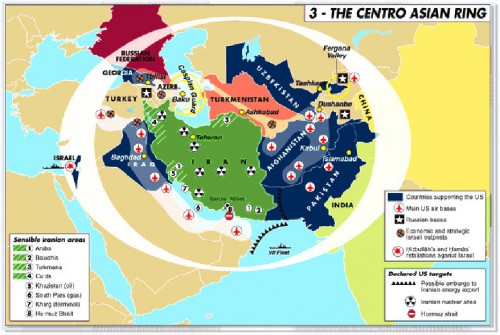

 Colin wrote two autobiographies: the first,
Colin wrote two autobiographies: the first, 
